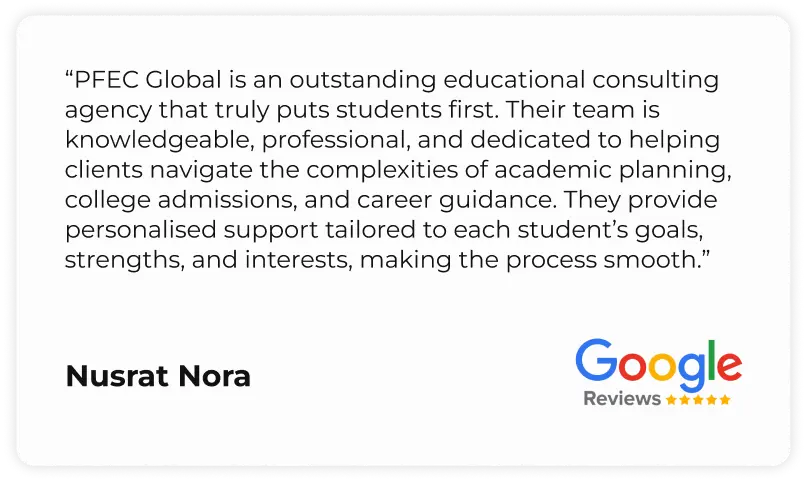PR Pathway Guidance

Country-wise rules
The USA has a unique system that students must navigate to meet certain criteria. In contrast, Australia requires international students to have Overseas Student Health Cover (OSHC). Similarly, in the UK, students are obligated to pay an Immigration Health Surcharge (IHS) to gain access to the National Health Service (NHS). Additionally, some universities have their own specific requirements, which often include particular coverage limits in their health insurance schemes.
Selecting a plan
Recognizing the diverse needs of students, universities create customized health insurance policies that provide essential coverage. Students can conveniently enroll in these plans during their registration process, ensuring peace of mind from day one. If a university does not offer its own insurance, students must seek private health insurance, which may not fully meet their specific needs. It's crucial for universities to invest in comprehensive health insurance options that prioritize student well-being and security.
Purchasing Health Insurance
Health insurance is essential for students, and selecting the right plan is vital for their well-being. By carefully considering their unique needs, students can find a plan that offers the best balance of cost and benefits. After choosing a suitable plan and making the necessary payment, students will receive a certificate as proof of their coverage, ensuring assurance during their academic journey.
Country-wise rules
The USA has a unique system that students must navigate to meet certain criteria. In contrast, Australia requires international students to have Overseas Student Health Cover (OSHC). Similarly, in the UK, students are obligated to pay an Immigration Health Surcharge (IHS) to gain access to the National Health Service (NHS). Additionally, some universities have their own specific requirements, which often include particular coverage limits in their health insurance schemes.
Country-wise rules
The USA has a unique system that students must navigate to meet certain criteria. In contrast, Australia requires international students to have Overseas Student Health Cover (OSHC). Similarly, in the UK, students are obligated to pay an Immigration Health Surcharge (IHS) to gain access to the National Health Service (NHS). Additionally, some universities have their own specific requirements, which often include particular coverage limits in their health insurance schemes.
Early Childhood Education & Care
Australia’s dedication to early development and education has made early childhood education and care (ECEC) a vital industry. This area includes all aspects of early child care and education in different educational contexts, usually from infancy to preschool age.
Skills and Qualifications
In Australia, working in early childhood education and care (ECEC) often requires a recognised certificate like a Diploma or Certificate III. Meeting the criteria for early childhood education established by the Australian Children’s Education and Care Quality Authority (ACECQA) requires these credentials.
Job Experience
Preschool or licensed childcare facility job experience is highly recognised. It shows how to care for children practically, including encouraging early learning and development with age-appropriate activities and curricula.
Visa Pathways
A number of PR pathways in Australia are available to qualified early childhood educators for application to migrate:
- Skilled Independent Visa (Subclass 189): For skilled workers who pass the points test and do not need employer or state/territory government sponsorship, there is the Skilled Independent Visa (Subclass 189).
- Subclass 190: Subclass 190, the skilled nominated visa, requires nomination by an Australian state or territory government, which often gives preference to locally sought-after jobs.
- Skilled Work Rural (Provisional) Visa (Subclass 491): With sponsorship from a state or territory government or qualifying family member, skilled workers may live and work in rural Australia under the Skilled Work Rural (Provisional) Visa (Subclass 491).
English Language Proficiency
The Pearson Test of English or the International English Language Testing System (IELTS) are two examinations used to determine English language proficiency. Communication with kids, coworkers, and parents effectively requires a good command of the language.
Engineering
In Australia, engineering is a broad and important profession including software, mechanical, electrical, and civil engineering. Throughout many sectors, engineers are essential to the creation of infrastructure, innovation, and technical progress.
Skills and Qualifications
Generally, one must have an authorised engineering degree in order to work as an engineer in Australia. Engineers Australia, the recognised evaluating body for engineering professions, evaluates this via a skills assessment.
Job Experience
To show practical abilities and expertise, one must have relevant job experience in the engineering discipline of choice. Before requesting to immigrate, engineers often get experience via internships, graduate degrees, or professional positions.
Visa Pathways
Engineers have a number of choices for visas:
- Skilled Independent Visa (Subclass 189): For skilled workers who pass the points test without requiring sponsorship, there is the Skilled Independent Visa (Subclass 189).
- Subclass 190: Subclass 190, the skilled nominated visa, requires a state or territory government to nominate you based on your particular skill requirements.
- Employer-Sponsored Visas: Australian employers sponsoring engineers may apply for the Temporary Skill Shortage (TSS) visa (Subclass 482) or the Employer Nomination Scheme (ENS) visa (Subclass 186).
English Language Proficiency
IELTS or PTE testing determines an engineer’s ability to speak clearly in work settings and follow safety regulations.
Nursing
A vital profession in Australia, nursing is essential to the provision of healthcare in hospitals, aged care homes, and community health services. Both the ageing population and the continuous healthcare changes are driving the need for qualified nurses.
Skills and Qualifications
A registered nurse with the Nursing and Midwifery Board of Australia (NMBA) is required to practice as a nurse in Australia. PR pathway courses in Australia guarantee compliance with national guidelines for patient care and practice.
Work Experience
Nurses wishing to migrate must have relevant clinical experience to show that they are competent in patient care, drug administration, and healthcare management. Many times, clinical assignments or professional positions provide nurses with experience.
Visa Pathways
Nurses may seek for PR pathways in Australia via the following routes:
- Skilled Independent visa (Subclass 189): No employer sponsorship required.
- Skilled Nominated Visa (Subclass 190): Depending on the need for nursing skills, a state or territory government must nominate applicants.
- Employer-supported Visas: For nurses sponsored by an Australian employer, there are the TSS visa (Subclass 482) and the ENS visa (Subclass 186).
English Language Proficiency
IELTS or PTE is used to measure English language proficiency, which guarantees nurses can interact well with patients, coworkers, and other medical professionals.
Social Work
In Australia, social work is concerned with helping people improve their quality of life and general well-being. Among the many social concerns social workers handle include disability assistance, child protection, and mental health.
Skills and Qualifications
In Australia, one must normally have a recognised social work qualification and be registered with the Australian Association of Social Workers (AASW) in order to operate as a social worker. Assuring adherence to ethical behaviour and professional norms.
Work Experience
Relevant experience in social work contexts, including government or community groups, shows real-world abilities in advocacy, counselling, and evaluation. Experience is obtained by social workers in professional positions or via supervised assignments.
Visa Pathways
Social workers may seek for permanent residence via the following routes:
- Skilled Independent visa (Subclass 189): No employer sponsorship required.
- Skilled Nominated Visa (Subclass 190): Depending on the need for social work expertise, a state or territory government must nominate applicants.
- Firm-supported Visas: For social workers sponsored by an Australian firm, there are the TSS visa (Subclass 482) and the ENS visa (Subclass 186).
English Language Proficiency
IELTS or PTE testing determines a social worker’s ability to interact with clients and work with interdisciplinary teams in English.
Information Technology
Software development, cybersecurity, data analytics, and network engineering are just a few of the dynamic and quickly expanding areas within Australia’s information technology industry. Throughout industries, the sector propels innovation, digital transformation, and technical breakthroughs.
Skills and Qualifications
Generally people need to have a recognised qualification in information technology or a related subject to work in IT in Australia. The Australian Computer Society (ACS) checks credentials and work experience as part of a skills evaluation for PR pathway courses in Australia.
Work Experience
Proficient in technical abilities, problem-solving, and project management, relevant work experience in IT jobs like software developer, IT consultant, or systems analyst. IT workers get experience via jobs, graduate schools, and internships.
Visa Pathways
IT workers have the following options for applying to become permanent residents:
- Skilled Independent visa (Subclass 189): No employer sponsorship required.
- Skilled Nominated Visa (Subclass 190): Depending on the need for IT skills, a state or territory government must nominate the applicant.
- Firm-supported Visas: For IT professionals sponsored by an Australian firm, there are the TSS visa (Subclass 482) and the ENS visa (Subclass 186).
English Language Proficiency
IELTS or PTE testing determines English language proficiency, which guarantees IT professionals can interact successfully with customers, coworkers, and stakeholders in English-speaking settings.
Simplify your Education & Migration Needs with PFEC Global's Expert Guidance
Book Free Consultation →



What are my options and possibilities for submitting an Australian PR application?
Depending on your situation, you have many options when applying for an Australian Permanent Residency (PR). The Skilled Work Regional (Provisional) Visa (Subclass 491) is for regional employment; the Skilled Nominated Visa (Subclass 190) is for skilled workers who need state or territory nomination. There are several routes for family sponsorship and employer-sponsored visas, each with particular perks and requirements
If I don't have enough points to submit an application for a PR. What are my options?
If your points total is not enough for a PR application, think about being nominated by a state or territory, which may provide more points. Getting additional job experience, taking language exams like the PTE or IELTS, or going to further school in Australia to improve your credentials are all good ways to improve your English.
Does applying for a new course and student visa when I know my TR (Temporary Resident) is about to expire present any risks?
Applying for a new PR pathway courses in Australia and a student visa while your Temporary Resident visa is about to expire might be dangerous. To prevent possible visa denial, make sure your application is complete and satisfies all Department of Home Affairs standards. Learn the terms of any bridging visa that could be applicable throughout the application process, and if you’re not sure whether your application is complete or if you qualify, get expert help.